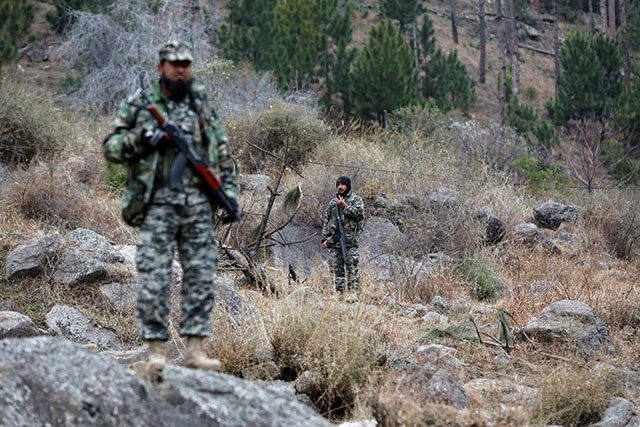
ISLAMABAD — Facebook has removed 103 pages, groups and accounts that were part of a network it said were linked to employees of the Pakistani military’s public relations arm, the social media group announced on Monday.
Facebook said it removed pages and accounts on Facebook and Instagram that spread information about Pakistani politics and political leaders, the Indian government and the Pakistani military.
“Today we removed 103 pages, Groups and accounts for engaging in coordinated inauthentic behavior on Facebook and Instagram as part of a network that originated in Pakistan,” Nathaniel Gleicher, Facebook’s head of cybersecurity, said in a statement.
“Although the people behind this activity attempted to conceal their identities, our investigation found that it was linked to employees of the ISPR (Inter-Service Public Relations) of the Pakistani military.”
ISPR did not respond to requests for comment.
Facebook’s announcement comes at a time when it has been facing increasing pressure across the world over the use of its platforms by politically aligned groups, many of which conceal their true identity.
The 24 pages, 57 accounts and 7 groups removed on Facebook had more than 2.8 million followers. An additional 15 Instagram accounts were also removed.
Facebook simultaneously announced the removal of 687 pages and accounts linked to India’s main opposition Congress party which had engaged in “coordinated inauthentic behavior” on its social media platform.
“We’re taking down these pages and accounts based on their behavior, not the content they posted,” Gleicher said.
An analysis of the pages, accounts, and groups by the Atlantic Council think tank’s digital forensic lab said the tone of the pages in questions strongly supported Pakistan and attacked India, consistent with ISPR’s behavior.”
The military’s spokesman has often mentioned the term “fifth generation warfare” during press conferences, referring to an unconventional battlefield that includes the dissemination and countering of information on social media.
A number of journalists and activists critical of the military on social media have been threatened and abducted in the past two years. Three men who were abducted for five weeks in 2017 told Reuters and other news outlets that they had been taken by the military’s spy wing.
“Winning the war of narratives and making the dissenting voices irrelevant in cyberspace is possibly their main aim,” Shahzad Ahmad of digital rights group Bytes for All told Reuters.
“They are organized, well-resourced groups with a sense of purpose, we call them cyber armies.”
Last week, Facebook removed a social media network in the Philippines and took the unusual step of linking it to a businessman who said he had managed the president’s online election campaign in 2016. It has taken similar actions recently against accounts in Russia and Iran.
— Additional reporting by Jack Stubbs; Writing by Saad Sayeed; Editing by Nick Macfie









